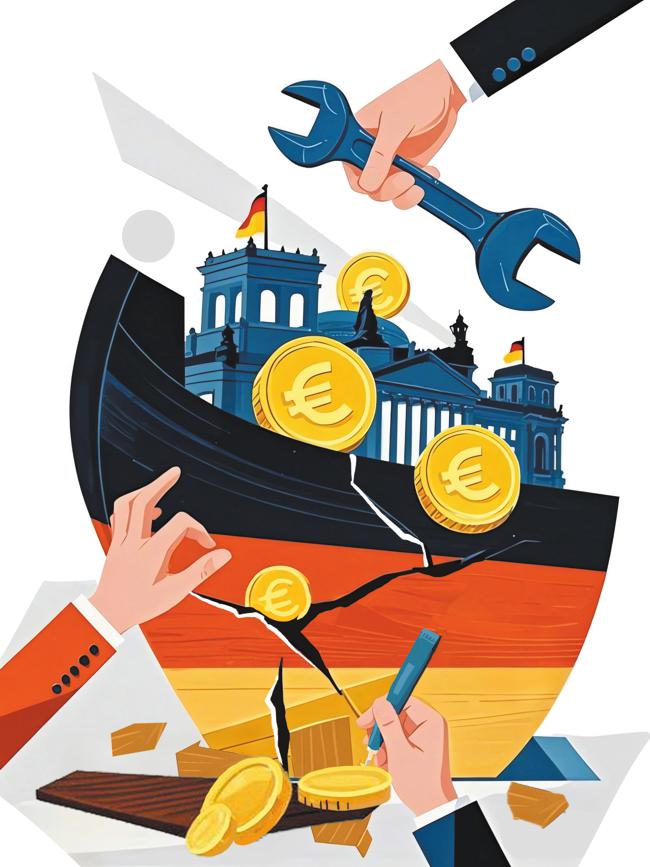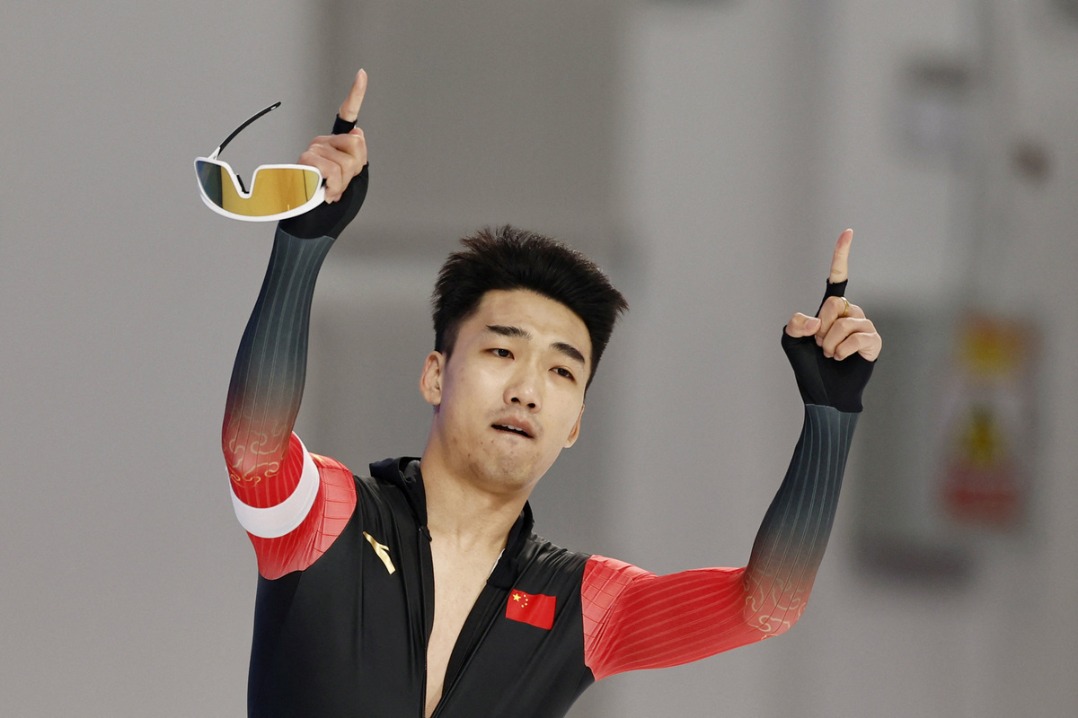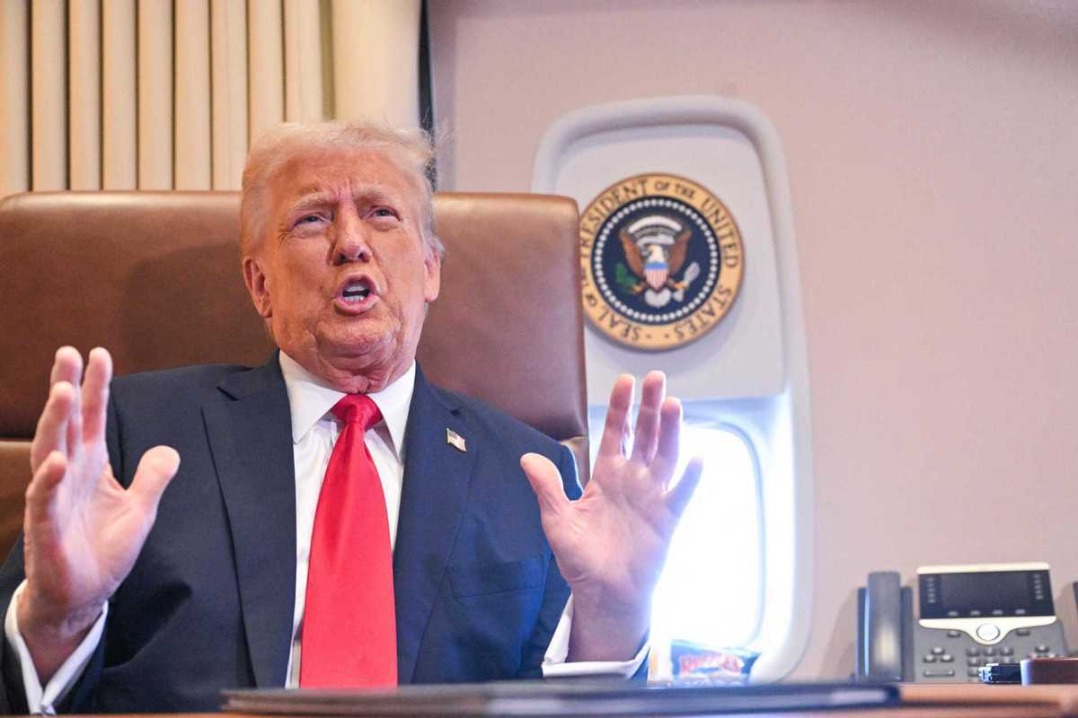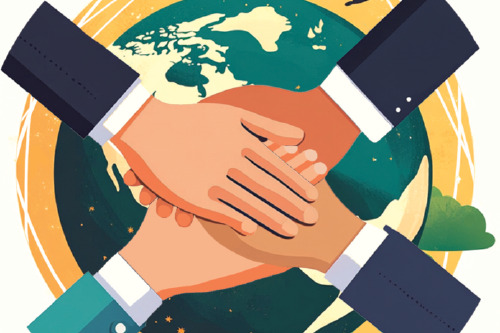Room to maneuver
Germany, as the leading power in the EU, should play an active role in ensuring the bloc to become strategically more autonomous


After the outbreak of the Ukraine crisis in 2022, German Chancellor Olaf Scholz delivered a speech on zeitenwende, which means a historical turning point. Since then, Germany has advanced the transformation of its foreign and security policy.
Germany has reshaped its relations with the major powers. On the one hand, the Scholz government and the Joe Biden administration strengthened security cooperation and international strategic coordination declaring that the European Union's common defense is complementary to NATO. In addition, within the US-EU Trade and Technology Council, Germany and the US have strengthened their coordination on export controls and foreign direct investment screening and set compatible standards and regulations in trade and investment. On the other hand, Germany has proposed reducing its economic and trade dependence on China, linking economic and trade issues with national security. The weight of competition and confrontation in Sino-German relations has risen.
However, the partnership between Germany and the US will be challenged during the second Donald Trump administration. During the first Trump administration, Germany and the US showed significant differences concerning the international trade order, multilateralism, liberal democratic values and global governance. Germany is even more worried about bilateral relations in Trump's second term. The US technology industry has curried favor with Trump and helped him promote his "America First" approach and the "Make America Great Again" movement, and pursue a transactional foreign policy, which puts tangible benefits and deals above abstract values, and abandons aid and financial assistance as a political tool, which represents a transformation in the US approach toward its allies.
President Trump signed numerous executive orders on his first day in office, including the deportation of illegal immigrants, easing regulatory burdens on oil and gas production, the US' withdrawal from the Paris Agreement and the World Health Organization, imposing a 25-percent tariff hike on imports from Canada and Mexico (later postponed), and a 10-percent tariff hike on Chinese goods, which is undoubtedly a reversal of the Biden-era US foreign policy. The EU and Germany are not happy to see it.
Here are four points where the US and Europe could diverge in Trump's second term.
First, on the defensive alliance, Europe is not a priority for the US.It remains to be seen whether the Trump administration is still willing to aid Ukraine, what kind of deal is required for the US aid to Ukraine, and whether it will request a higher price for the European allies to maintain the US security guarantee in NATO.Trump called on NATO countries to increase their defense spending to 5 percent of their GDP before his inauguration. Besides, at the World Economic Forum meeting in Davos, Trump said he would like to be able to meet with Russian President Vladimir Putin to get the war ended, and hoped China would contribute to bringing about an end to the crisis in Ukraine. The EU is concerned that it will be "marginalized" in a US-led mediation process.
Second, the US and Europe may be involved in a trade war again. Trump's favorite word is "tariffs", which he believes will make the US rich again. Based on his "transactional" approach to foreign policy, Trump has asked the EU to take measures to address the US-EU trade balance, including importing more US energy and military products. Trump has pressured German companies to choose between two alternatives, either investing in plants in the US or being hit with tariffs.
Third, Europe and the US have less common language on climate issues. Trump opposes the EU's Green Deal, and encourages the production of oil and gas rather than renewable energy.
Fourth, the transatlantic liberal value alliance is at risk of collapsing. Trump's Cabinet has clearly expressed his support for right-wing populists and conservative parties in the EU, impacting EU cohesion. Trump team's favoring of conservative nationalism makes them have more sympathy with the sovereigntist and conservative governments and even the farright parties in Europe, such as the Alternative for Germany, France's Rassemblement National, Hungary's Viktor Orbán government and Italy's Giorgia Meloni government, especially on issues such as immigration policy, energy policy and the Ukraine crisis, where they run counter to the views of the liberal EU establishment.
US-European disputes over the rule-based international order will be no less intense than they were during Trump's first term, and the great power competition will be more intense. The EU has been talking about "strategic autonomy" and "defense capability" for many years. However, the frequent appearance of the EU's strategic autonomy in its political rhetoric without any real progress has led to the EU's declining international competitiveness and disunity and made it difficult for it to take its place in the geopolitical competition. At a time of turbulence in the international order, Germany, as the leading power in the EU, should play an active role in shaping the EU to become strategically more autonomous.
In terms of Sino-German economic ties, German investment in China still has resilience, and German direct investment in China in 2023 totaled 11.9 billion euros ($12.3 billion), reaching a historical high. Based on a business confidence survey released by the German Chamber of Commerce in China, in 2024, 91 percent of surveyed German companies expressed their intentions to continue their operations in China.
According to the data from Munich's Ifo Institute, a leading German economic research organization, in an extensive US tariffs policy, German exports to the US could fall by 14.9 percent. German exports to China could decline by 9.6 percent. The US tariffs on China would also adversely affect Chinese demand for intermediate products from Germany, and if China were to impose retaliatory tariffs in response, the negative impact on Germany would be significantly greater. Trump's tariffs on the EU will add insult to injury for the German economy. In recent years, due to the decoupling of German and Russian energy, German companies have encountered greater pressure as a result of high energy prices, and the crisis in the German automotive industry has spread with mass layoffs. The German economy has been in recession for two years since 2023. Its economic troubles have also triggered a political crisis. Germany's Scholz government collapsed due to budgetary and economic policy disagreements among the coalition partners and the country is to hold early elections in February 2025.
Amid the turbulent international environment, Germany and China need to maintain cooperation.
First, 2024 marked the 10th anniversary of the all-round strategic partnership between China and Germany. Chinese and German companies are embedded in the global industrial chains, especially in the automobiles and chemicals sectors. The concerns of enterprises should be taken seriously and the business environment of both countries should be improved to promote economic prosperity and welfare, rather than constraining each other for so-called security reasons.
Second, the US' alliance policy is characterized by uncertainty, which will not only be a shock to the European economy but also strike at the EU's unity. In recent years, Germany has advocated taking on more responsibility for the EU and called for improving EU cohesion and competitiveness. Germany, as a responsible EU power, should promote the strategic autonomy of the EU, especially in the areas of global governance, multilateral mechanisms, and international cooperation to cope with climate change which has been a core concern of Europe and China for many years and one that is being ignored by the Trump administration. The pragmatic cooperation between Germany and China remains important to counteract unilateralism and trade protectionism and it can play an important role in the international multilateral system.

The author is an associate professor at the Institute of European Studies at the Chinese Academy of Social Sciences. The author contributed this article to China Watch, a think tank powered by China Daily. The views do not necessarily reflect those of China Daily.
Contact the editor at editor@chinawatch.cn.



































